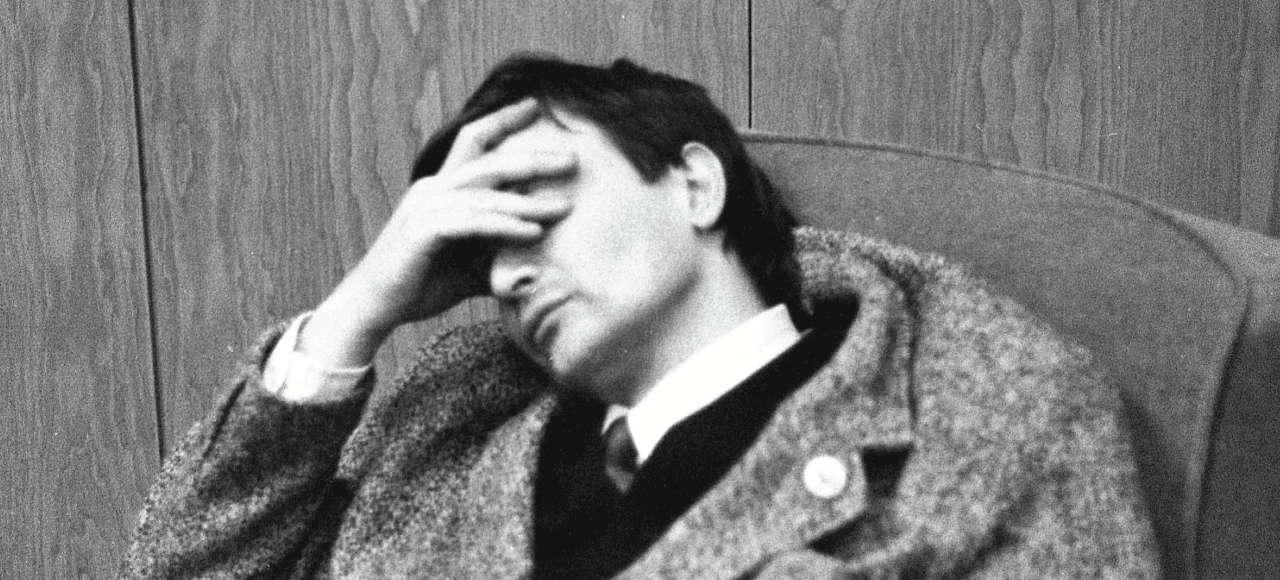
Colin McGinn has written on a wide range of philosophical issues and is best known for his argument that the human mind is incapable of understanding itself, and that therefore attempts to understand the nature of consciousness are doomed. He has written a novel and a memoir, and has recently turned his attention to the cinema and Shakespeare. He is professor of philosophy at Miami University.
1. How has your own philosophical thinking developed or changed most significantly over the last ten years?
I used to think the basic mysteries of nature pertained exclusively to the mind; now I think that physics is rife with mystery. And not just quantum theory but even classical physics: we don’t even know what electric charge is or what constitutes matter. I now take Russell’s “structural” interpretation of physics much more seriously – that physics tells us the abstract character of physical facts but not their intrinsic nature. I also see no bar to viewing consciousness as a form of matter.
2. Which philosopher do you think has produced the most interesting work over the last 10 years?
I find this question very hard to answer. No one stands out in my mind. I’d have to say I find my own work most interesting! But then, wouldn’t anyone say this (of his or her own work, not mine)?
3. Has philosophy responded adequately to the big events and debates of the last decade, such as climate change and the post-9/11 world?
No, but it hasn’t responded inadequately either – which would be worse. What would an adequate response look like? Philosophers should respond, but it’s not clear to me that philosophy should. (Compare responding to the Holocaust.) On the other hand, if someone came up with something genuinely useful philosophically, I’d be all ears.
4. We have lost some exceptional philosophers since 1997. If you had to choose one to be remembered at our anniversary, which would it be?
Yes, it is sad to lose all those people – many of whom defined my earlier philosophical life. For me personally, Bernard Williams and Richard Wollheim are the ones to remember, because they did philosophy in a way not so well represented these days: less professionalised, more open. It was also good simply to be in the same room as Bernard and Richard.
5. As a profession, is philosophy in a better or worse state than it was in 1997?
Better in some respects, worse in others. It seems more democratic now, less centralised; but philosophy is not as exciting these days as it used to be. I’d even say that a kind of graduate student mentality has taken over: being an expert in “the literature” is too highly prized, while originality is looked on with suspicion. Also, it’s just got more nerdy. The people are less amusing, shallower, more one-dimensional (I’m speaking generally).
6. It has been argued that philosophers have become more engaged with the wider public and other disciplines than they were ten years ago. Do you agree and if so, do you think this is a good thing?
Philosophers have become a bit more widely engaged, though only a few of them. I do think this is a good thing, but we have to be careful of vulgarisation – though, from what I’ve read, the quality has been good. I haven’t noticed my own efforts being much welcomed by academic philosophers, with some exceptions.
7. Where (physically or otherwise) do you think the liveliest debates have been going on in philosophy over the last decade?
Inside my own head, of course (I couldn’t resist saying this). Looking beyond that domain, I can only say metaphysics seems pretty lively these days.
8. Who do think has been the most under-appreciated philosopher of the last ten years?
The referent of the first-person pronoun. Has there ever been a philosopher who regards herself as overrated? I am sometimes puzzled that some of my work is rated more highly than other parts when I don’t see it that way.
9. Are there any issues which you think philosophy should have been more engaged with, or any wrong-turns the subject has taken?
I think philosophy of physics has been handed over to technical people and that there are many issues about physics which should have a broader currency. The major wrong turn is stylistic: always trying to sound impressive, professional, corporate/scientific. It stems from fear and a desire to intimidate rather than communicate. Keep it real! Don’t try to make it more complicated than it is!
10. Do you feel more or less optimistic about the state of the world than you did in 1997?
Less optimistic. Africa and the Middle East are in desperate shape and the major powers seem unable to do anything. American policy has been disastrous. Propaganda is more effective than ever. But maybe the coming American elections will begin something better.
Colin McGinn has written on a wide range of philosophical issues and is best known for his argument that the human mind is incapable of understanding itself, and that therefore attempts to understand the nature of consciousness are doomed. He was Professor of Philosophy at Miami University.

